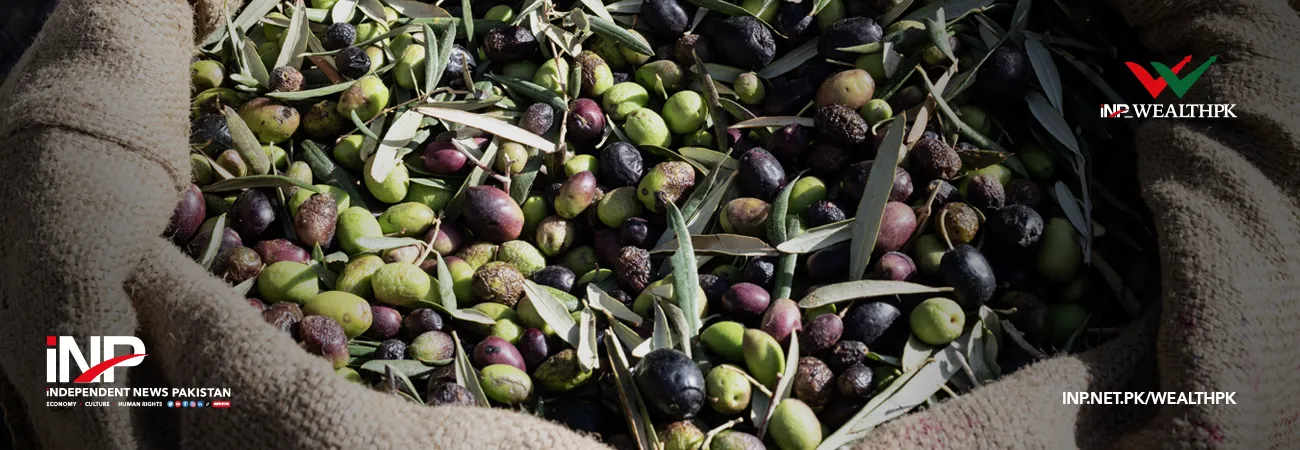INP-WealthPk
ISLAMABAD, Feb. 03 (INP-WealthPK): China-Pakistan Economic Corridor (CPEC) is not only a bilateral project but also offers significant benefits to other nations, with Germany being one of the countries which can immensely benefit from the initiative.
Germany is Pakistan's major commercial partner in Europe. According to WealthPK research, in 2019, Pakistan's exports to Germany were roughly $1.35 billion, while imports totalled $0.85 billion. Exports increased to $1.40 billion in 2020. The value of trade volume between the two nations was $2.2 billion. Trade has been in Pakistan's favour for the past eight years. Textiles, leather products, sports goods, footwear, and medical equipment are Pakistan's primary exports to Germany, while machinery, chemical and electrical goods, motor vehicles, and iron items are key imports.
 Source: UN Comtrade Database/WealthPK Research
The two countries have a lot of potential to further improve their bilateral relations and trade volume. Both nations have launched the Pak-German Strategic Dialogue, recognizing its relevance and potential. German investors are eager to participate in the CPEC. The second phase of CPEC places a strong emphasis on industry. Pakistan is also working to construct special economic zones (SEZs) to boost the industrialisation process. Pakistan and China are asking other nations to join the industrialisation process and benefit from it. Germany has grown into a major industrial force with technological advantage, which is why the host nation would be pleased if Germany joins the CPEC.
Germany is in a unique position to gain from CPEC. Germany has a long history of strong ties with Pakistan and China. Approximately 5,000 German firms are functioning in China, according to a report in South China Morning Post. As a result, German firms may participate in CPEC based on their previous expertise with Pakistan and China.
Joining CPEC and utilising the route for commerce between China and Afghanistan would be extremely beneficial to Germany. Gwadar Port has the potential to serve as a transit port for commerce between China and Afghanistan. In comparison to current routes, Gwadar Port and the CPEC route have a comparative advantage. Not only does it save money, but it also saves time. By keeping the whole amount of commerce in mind, Gwadar Port and CPEC route can help Germany save significant financial resources.
Both the governments have close partnerships in various economic, technical and industrial sectors, while Pakistan is benefitting from wind energy projects and also in technical and vocational training. The administration anticipates collaborating on a new bilateral Climate and Energy Initiative. Both countries are happy to be economic partners that are also committed to environmental preservation and climate change mitigation. Pakistan could gain from German technology transfer, and initiatives related to the supply and manufacturing of electric cars are in line with the government's aim of promoting a safe and environment-friendly environment.
However, there are a few areas that Pakistan will need to improve in order to attract German businesses. First and foremost, the business climate must be improved. Pakistan will need to develop an atmosphere that is conducive to business and free of obstacles. Second, to promote the CPEC's SEZs to German enterprises, Pakistan will need to develop a solid marketing plan based on facts and data. Pakistan must make a comparison of its SEZs with other global economic zones for this reason. The comparison will aid German businesses in making decisions.
Finally, Pakistan and Germany may work together to improve training and skill development, particularly in current technology. It is required at this time since the world is about to begin its fourth industrial revolution.
Source: UN Comtrade Database/WealthPK Research
The two countries have a lot of potential to further improve their bilateral relations and trade volume. Both nations have launched the Pak-German Strategic Dialogue, recognizing its relevance and potential. German investors are eager to participate in the CPEC. The second phase of CPEC places a strong emphasis on industry. Pakistan is also working to construct special economic zones (SEZs) to boost the industrialisation process. Pakistan and China are asking other nations to join the industrialisation process and benefit from it. Germany has grown into a major industrial force with technological advantage, which is why the host nation would be pleased if Germany joins the CPEC.
Germany is in a unique position to gain from CPEC. Germany has a long history of strong ties with Pakistan and China. Approximately 5,000 German firms are functioning in China, according to a report in South China Morning Post. As a result, German firms may participate in CPEC based on their previous expertise with Pakistan and China.
Joining CPEC and utilising the route for commerce between China and Afghanistan would be extremely beneficial to Germany. Gwadar Port has the potential to serve as a transit port for commerce between China and Afghanistan. In comparison to current routes, Gwadar Port and the CPEC route have a comparative advantage. Not only does it save money, but it also saves time. By keeping the whole amount of commerce in mind, Gwadar Port and CPEC route can help Germany save significant financial resources.
Both the governments have close partnerships in various economic, technical and industrial sectors, while Pakistan is benefitting from wind energy projects and also in technical and vocational training. The administration anticipates collaborating on a new bilateral Climate and Energy Initiative. Both countries are happy to be economic partners that are also committed to environmental preservation and climate change mitigation. Pakistan could gain from German technology transfer, and initiatives related to the supply and manufacturing of electric cars are in line with the government's aim of promoting a safe and environment-friendly environment.
However, there are a few areas that Pakistan will need to improve in order to attract German businesses. First and foremost, the business climate must be improved. Pakistan will need to develop an atmosphere that is conducive to business and free of obstacles. Second, to promote the CPEC's SEZs to German enterprises, Pakistan will need to develop a solid marketing plan based on facts and data. Pakistan must make a comparison of its SEZs with other global economic zones for this reason. The comparison will aid German businesses in making decisions.
Finally, Pakistan and Germany may work together to improve training and skill development, particularly in current technology. It is required at this time since the world is about to begin its fourth industrial revolution.













